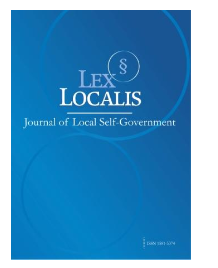INSTITUTIONAL AUTONOMY IN DEVELOPING HIGHER EDUCATION: A RISK-BASED READINESS AND STRATEGIC PLANNING FRAMEWORK UNDER EXTERNAL PRESSURES IN NORTHEASTERN THAILAND
DOI:
https://doi.org/10.52152/802048Keywords:
institutional autonomy, adaptive governance, strategic planning, risk scoring, ASEAN, higher educationAbstract
This study proposes an integrated framework to assess organizational readiness and inform strategic planning for institutional autonomy in higher education, with a focus on decentralization and developing economies. Drawing on a single-case study of a faculty of social science at a public university in Northeastern Thailand—a region facing rural-urban migration and resource disparities—the framework combines readiness assessments, phased planning, external pressure analysis, and dynamic risk management. Findings reveal moderate institutional preparedness (6.60/10), supported by community engagement but constrained by limited IT infrastructure and unstable funding. A phased planning model supports gradual reforms, including hybrid learning and regional partnerships, guided by adaptive governance and stakeholder input. External pressures—particularly demographic shifts and labor demands—are prioritized over national mandates, with an External Pressure Score of 7.70/10. Financial risk remains critical (Residual Risk = 43.20), though mitigated through local collaborations and real-time monitoring (80.4% effectiveness). The study emphasizes the importance of localized strategies for autonomy, advocating for community-driven solutions in under-resourced settings. Policy recommendations include ASEAN-wide collaboration, flexible governance tools, and equitable resource distribution. Overall, the framework offers a scalable, context-sensitive approach to institutional resilience and contributes to broader discussions on higher education reform and governance innovation.
Downloads
Published
Issue
Section
License
Copyright (c) 2025 Lex localis - Journal of Local Self-Government

This work is licensed under a Creative Commons Attribution-NonCommercial-NoDerivatives 4.0 International License.








